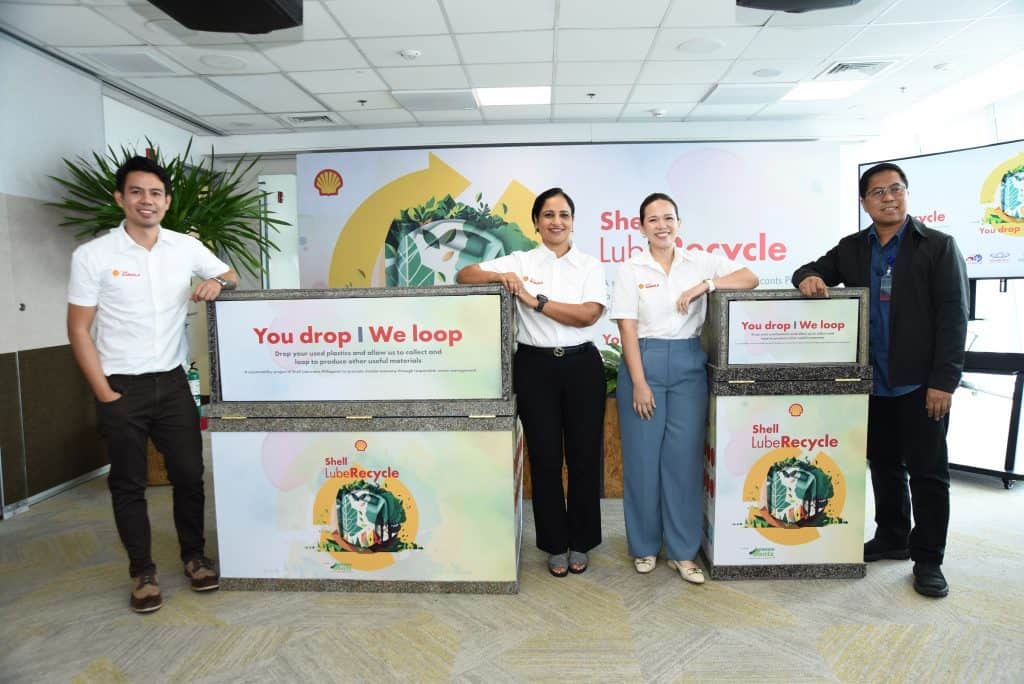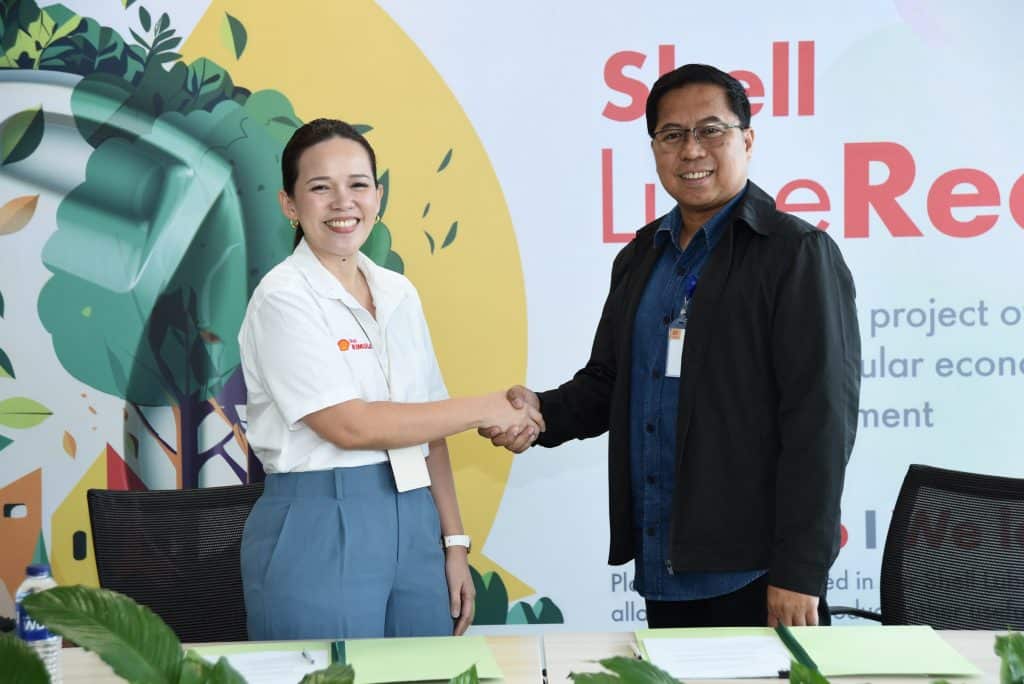In an effort to reduce plastic waste and promote circular solutions, Shell Lubricants launched Shell Lube Recycle, a collaborative sustainability project that enables customers and partners to participate in responsible plastic waste management and recycling. The project will initially roll out with Green Antz as one of the many partners in the pipeline and will be piloted in Mega Manila.
As part of the project, customers are encouraged to drop off their used lubricant bottles and pails as well as other plastics into designated bins located in strategic collection sites with partner auto workshops and car dealers such as AUTOCASA and Car Doctor in Quezon City; FOTON Motor Philippines, Inc. in Pampanga (Clark), Valenzuela City, Laguna (Sta. Rosa), Pasig City, and Cavite (Bacoor); and Chery Auto Philippines in Pasig City and Cavite (Bacoor). Shell Lubricants Philippines is actively seeking to forge more partnerships as the project continues to expand.

The plastic waste collected will be recycled into other useful materials, such as eco-bricks which are sturdy and durable bricks made from compressed plastic waste. These can be used for both residential and commercial construction, like the commercial building of the Shell Mobility station in Plaridel, Bulacan launched last 2021.
During the MOA signing ceremony held recently in Taguig City, Jackie Famorca, Vice President of Shell Lubricants Philippines, highlighted the initiative’s alignment with Shell’s commitment to promoting waste management.
“We recognize the need for a fundamental shift in our approach to waste production and management, which inspired our Shell Lube Recycle program that we are launching with Green Antz as the first of the many partnerships in store for this initiative. Let’s help create a more sustainable future for the next generations to come by converting plastic waste into something more meaningful and useful,”said Famorca.
Moreover, this initiative is in support of government policies that promote the increase of recycling rates, including measures focused on the collection and sortation of waste as well as the Extended Producer Responsibility (EPR) Law.
Mansi Tripathy, Vice President of Shell Lubricants Asia-Pacific, shared Shell Lubricants’ aspiration to deliver high-performance products, with lower carbon footprint through waste reduction and more circular solutions. In addition to carbon intensity reduction, Shell Lubricants is committed to increasing the amount of recycled content in its products’ packaging to 30% and ensuring that all packaging is reusable or recyclable by design by 2030.

In line with these goals, Shell Lubricants Philippines entered a partnership with Green Antz, a social enterprise dedicated to reducing plastic waste and promoting sustainability in the Philippines. Since its inception in 2013, the company has actively engaged in plastic waste collection, upcycling, and the advocacy of sustainable practices within local communities. Green Antz will be responsible for the recovery and recycling of plastic waste collected from designated bins in partner location sites.
“Green Antz has maintained a longstanding partnership with Shell Pilipinas Corporation (SPC), sharing a common vision for sustainability. We are more excited than ever to embark on this significant undertaking, strengthening our ties with SPC through its Shell Lubricants Business. We look forward to taking another step towards furthering our shared goals in the sustainability realm in the country,” said Engr. Rommel Benig, Founder and CEO of Green Antz Builders.

The goal to reduce carbon emissions is aligned with Shell’s overarching commitment to become a net-zero emission business by 2050. Furthermore, SPC recently signed an agreement with the Department of Environment and Natural Resources for the identification and development of Nature-Based Solutions (NBS) opportunities in the Philippines. This collaboration with stakeholders and partners reinforces Shell’s carbon reduction efforts as well as strengthens initiatives that protect the environment.
SPC is transforming its business to meet its target by avoiding and reducing emissions from its operations and from the fuels and other energy products it sells to its customers.

